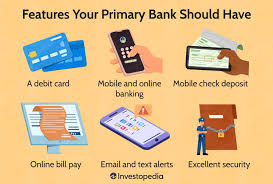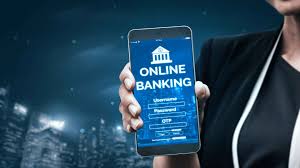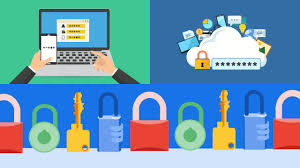Once upon a time in the realm of digital finance, banks embarked on a noble quest to ensure that their customers could navigate the vast landscape of internet banking with utmost safety and peace of mind. These financial institutions understood the importance of safeguarding their clients’ sensitive information and were unwavering in their dedication to creating a secure online environment.
However, in this expansive digital world, there lurked potential threats. Should you ever find yourself in a situation where you suspect that someone has discovered your internet banking credentials or may have gained unauthorised access to your account, it is crucial to act swiftly. Imagine yourself logging into your online banking portal; as you enter your credentials, a sense of urgency washes over you. The moment you gain access, your first course of action should be to change your password without delay.
In this age where vigilance is paramount, remember that the banks stand ready to support you on this journey toward security. They are steadfast allies in protecting your financial well-being as you traverse the intricate pathways of internet banking.
Safeguarding Your Online Banking Account
To enhance the security of your online banking account, we suggest adhering to the following recommendations: Employ a security token for an extra layer of verification. This method offers superior protection over relying solely on a password, significantly reducing the chances of unauthorised access to your accounts or personal information.
Always keep your online banking credentials (including your password, security token 6-digit code, and four-digit PIN) confidential at all times. We will never request this information from you in person or through SMS, email, or any other communication channels.
In the digital age, safeguarding your Internet Banking credentials is of utmost importance. Imagine you’re embarking on a journey through the vast landscape of online banking. As you prepare for this adventure, it’s crucial to ensure that your login information remains secure and out of reach from prying eyes.
First and foremost, resist the temptation to save your Internet Banking details on any device. Picture this: your smartphone or laptop becomes a treasure chest filled with valuable secrets—your login credentials included. However, if someone else gains access to that chest, they could easily uncover those secrets.
To fortify your defences, make sure each device you use is protected by a strong PIN or biometric security features such as fingerprints or facial recognition. Additionally, equip them with up-to-date antivirus software and robust firewalls—these are like shields that guard against potential threats lurking in the shadows.

As you navigate through this online banking realm via a web browser, always take the essential step of visiting the Bank website directly by typing in its address: www.dbs.com.sg This act is akin to charting a course on a map rather than relying on unverified shortcuts that may lead you astray.
When it comes time to log in, be vigilant! Never allow your web browser to remember or store your Internet Banking password; doing so could leave an open door for unauthorised access. Instead, maintain control over your credentials by entering them manually each time.
Before clicking ‘Enter,’ take a moment to scan the login page for an important symbol—a padlock icon nestled within the corner of your screen. This small yet significant emblem serves as assurance that you’re indeed connected with Rural Bank and not an imposter waiting in disguise. By clicking on this padlock, you can further verify the authenticity of the site you’re engaging with.
In summary, navigating online banking requires diligence and caution at every turn. By implementing these protective measures and remaining aware of potential risks, you’ll be well-equipped for a secure banking experience in this expansive digital world.
Once upon a time in the digital realm, there existed a wise guide for navigating the treacherous waters of Internet Banking. This guide warned its followers to be ever vigilant, especially when it came to links sent through emails or text messages.
These links are often masqueraded as friendly invitations, enticing users to log into their banking accounts. However, the wise guide cautioned against such temptations—never should one click on a link that leads directly to a login screen. Instead, it was always safer to type in the bank’s official website address directly into the browser.

In this world of convenience and connectivity, another important lesson emerged: never leave your device unattended while logged into your banking account. The risks were too great; an unattended device could invite unwelcome intruders into your financial sanctuary.
As our tale unfolds, we discover that every journey through Internet Banking must come to an end. When you’ve completed your tasks and are ready to depart from this digital domain, remember to select the ‘Log Out’ option nestled within the More menu of the Rural Bank app. This simple action is akin to closing the door behind you as you leave your home.
For those who prefer wandering through their banking experience via web browsers, heed this final piece of wisdom: if you simply close your browser without logging out first, you may unwittingly leave a pathway open for others. They could easily stumble upon your active session and gain access until it eventually times out—a risky situation indeed!

And so, with these lessons in mind, our adventurers continued their journeys through Internet Banking with newfound caution and awareness, ensuring their financial safety in an ever-evolving landscape.
In the vast landscape of our digital lives, it’s essential to embark on a regular journey through your financial accounts. Picture this: you’re exploring the intricate details of your balances and scrutinising each transaction as if you were an investigator piecing together clues. This routine not only keeps you informed but also empowers you to spot any anomalies that might arise.
Imagine discovering a discrepancy—a charge that seems out of place or a balance that doesn’t quite add up. In such moments, it’s crucial to act swiftly, reaching out to us without delay so we can assist in resolving any issues that may have surfaced.
Now, as you navigate this financial terrain, consider your choice of environment carefully. While the allure of internet cafes might seem tempting, they can often be fraught with risks. It’s wise to seek out more secure and private spaces for managing your sensitive information. By taking these precautions and keeping a vigilant eye on your accounts, you’ll ensure a safer and more secure financial journey ahead.
In the digital age, a practice known as screen scraping has emerged as a method for automated data collection, primarily employed by various third-party service providers. Imagine a scenario where you decide to share your Internet Banking Access ID and password with an external entity.

By doing so, you’re granting them permission to delve into your financial account. This access enables these providers to utilise sophisticated scraping technology, which essentially replicates your transactional data for their own purposes.
These third parties encompass a wide range of services—from online lenders who assess creditworthiness, to financial management applications that help users track their spending habits, and even accounting software developers who streamline business finances. Depending on the specific needs of these entities, screen scraping can take place either as a one-time event or on a recurring basis.
However, this process raises important considerations regarding privacy and security. Not only can the third party access your financial information in real time, but they may also retain your Access ID and password along with any transactional data they collect for potential future use.
This means that while you might benefit from enhanced services provided by these external applications, it’s crucial to be aware of what sharing your credentials entails in terms of safeguarding your personal information.

In the intricate dance of digital interactions, we find ourselves in a position where the specifics of your relationship with that third party remain shrouded in mystery. We lack insight into how your personal information is gathered, disseminated, or safeguarded. Consequently, we cannot guarantee the security measures employed by either the third party or the provider of the technology used for data scraping.
It’s essential to remember that our banking products come with strict terms and conditions—one crucial stipulation being that you must never disclose your Internet Banking credentials. This includes sensitive elements such as your Access ID, password, six-digit security token, or four-digit PIN to any external entity.
We urge you to exercise utmost caution and refrain from sharing vital details under any circumstances; doing so could expose you to unnecessary risks. Should you have any suspicion that your login information may have fallen into another’s hands, it is imperative that you act swiftly.

Log into your Internet Banking account at your earliest convenience and change your password to safeguard yourself against potential threats. Your vigilance is key in maintaining the security of your financial information amidst this complex digital landscape.
Maxthon
In the fast-paced world of digital finance, protecting your online banking details while using the Maxthon Browser has become more important than ever. Imagine embarking on a journey through the vast landscape of the internet; your financial information is like a treasure chest that you must safeguard against lurking pirates.
To begin this quest, it’s essential to forge strong passwords for your banking accounts—these should be intricate and one-of-a-kind, resembling a complex riddle that only you can solve. Combine uppercase and lowercase letters with numbers and special characters to create a secure fortress around your valuable data. Avoid using easily decipherable information, such as birthdays or beloved pet names, which are akin to leaving breadcrumbs for those who might seek to find you.
As you navigate this digital realm, look out for tools that can provide extra protection. If your bank offers two-factor authentication (2FA), seize this opportunity! It acts as an additional guardian by requiring not just your password but also a unique code sent directly to you via text or email—like having a secret key that unlocks another layer of security.

Equally important is the need to keep your Maxthon browser up-to-date. Think of it as maintaining the armour on your ship; regular updates ensure that you’re equipped with the latest defences against potential vulnerabilities and threats lurking in the shadows of cyberspace.
Moreover, make it a habit to regularly purge your browsing history, cache, and cookies—this is akin to cleaning out any traces of past voyages so that no sensitive information remains behind for potential intruders to discover if they gain access to your device.
For added safety during online banking escapades, consider utilising Maxthon’s privacy mode. This feature allows you to explore without leaving any footprints behind; no cookies or site information will be stored from those sessions—like sailing through uncharted waters without leaving a trace.
Additionally, think about bolstering your defences further with trustworthy security extensions or antivirus plugins tailored for Maxthon. These tools serve as vigilant sentinels guarding against phishing attacks and malware threats ready to ensnare unsuspecting travelers.
However, even with all these precautions in place, remaining alert is paramount. Phishing scams often disguise themselves as friendly gestures from banks; before entering into any transactions or logging into accounts, always verify the website’s URL carefully—ensure it’s truly where you intend to dock your ship. Be cautious about clicking links found in emails or messages claiming affiliation with your bank unless their legitimacy is beyond doubt.
Lastly, once you’ve completed all transactions during this digital expedition, remember to log out of your online banking session diligently. This simple yet effective act serves as closing time at the harbour; it prevents unauthorised access if someone else were ever tempted to use your device afterward.

By adhering strictly to these guidelines while navigating through Maxthon’s waters for online banking activities, you can significantly fortify the security surrounding one of life’s most precious treasures: your financial information.
